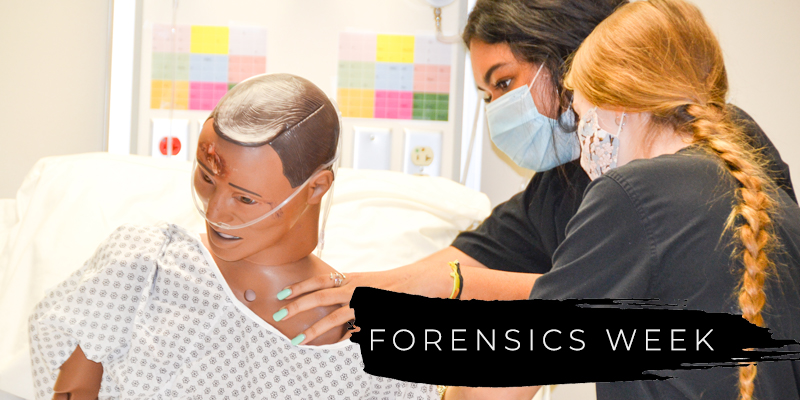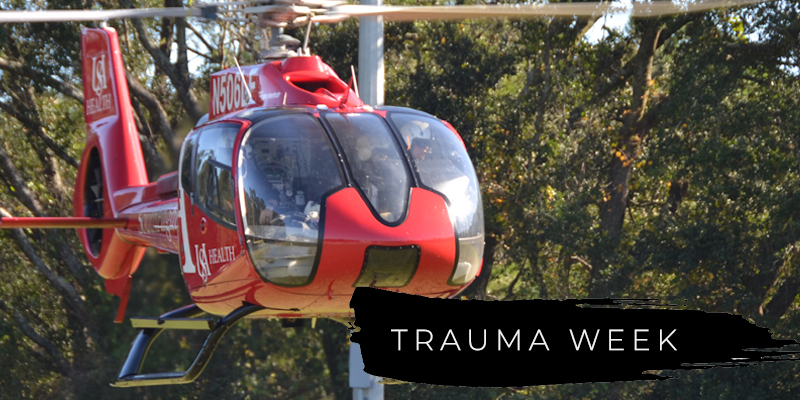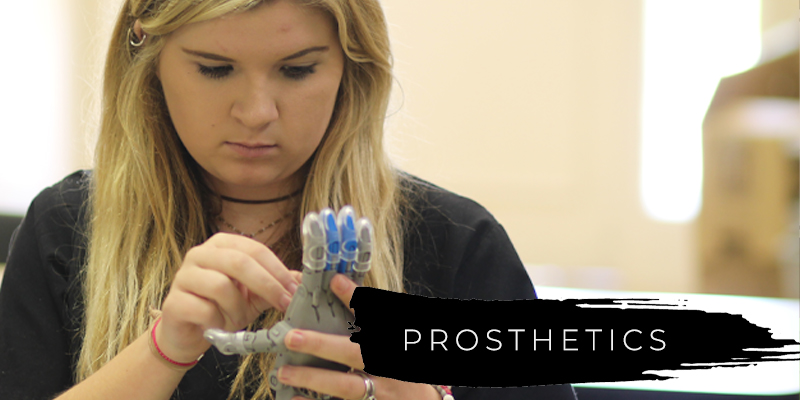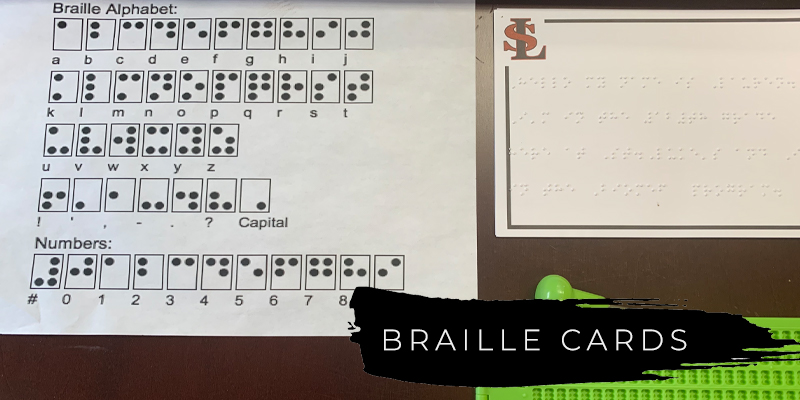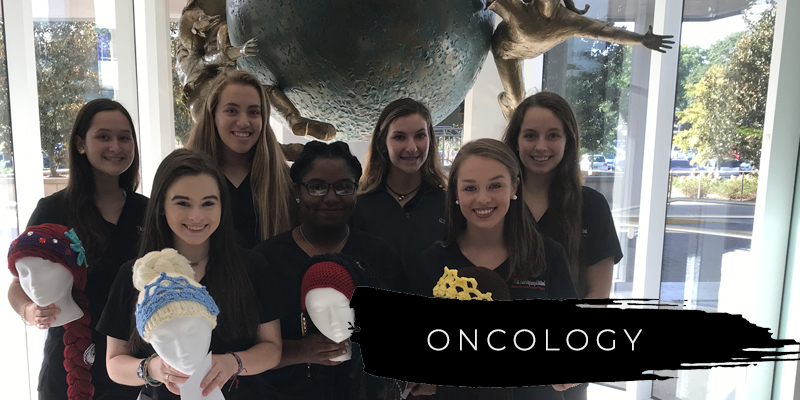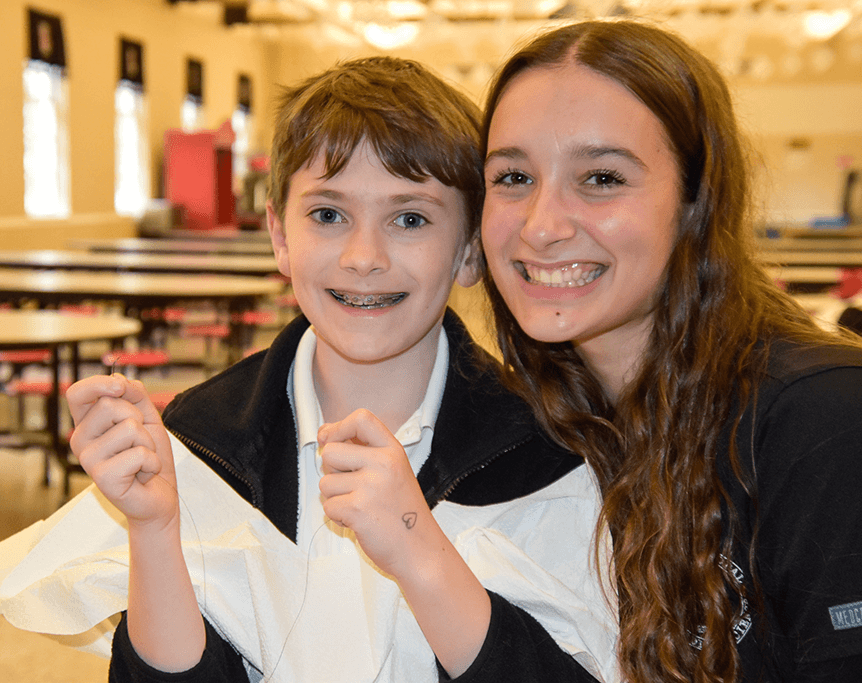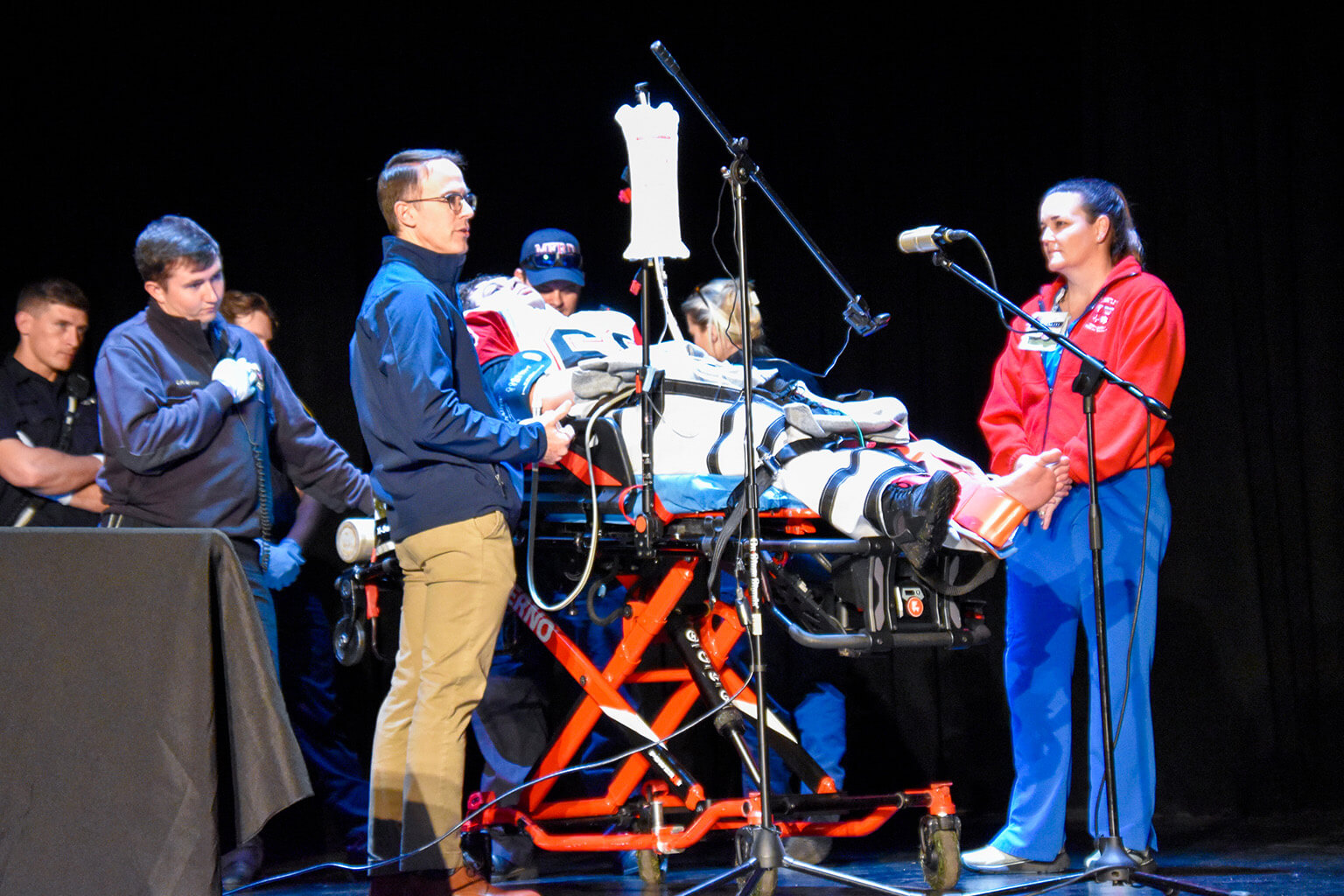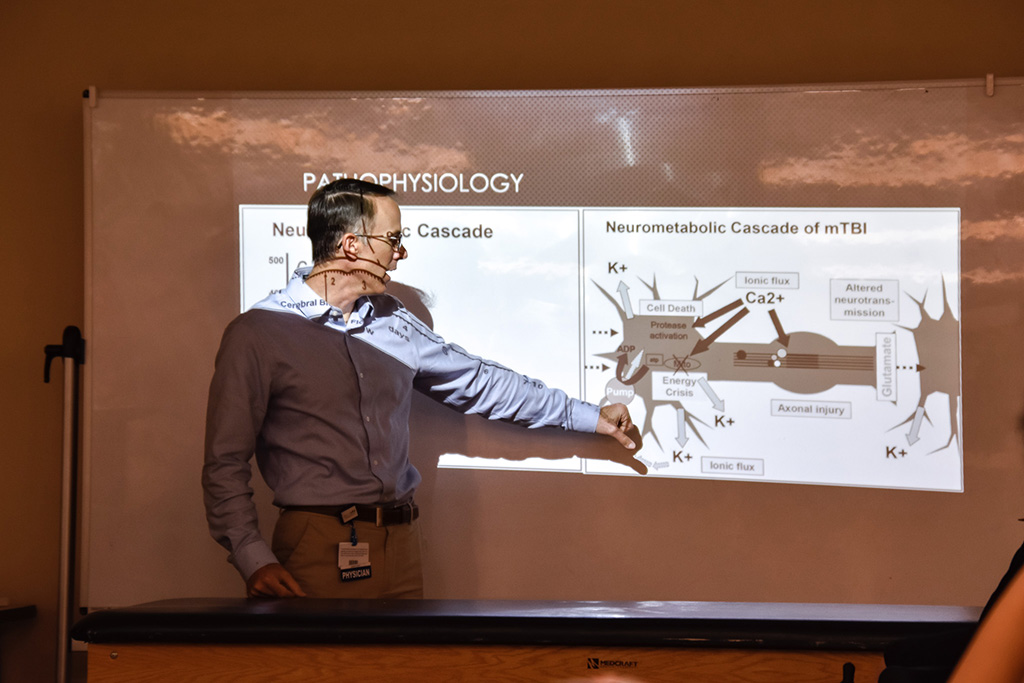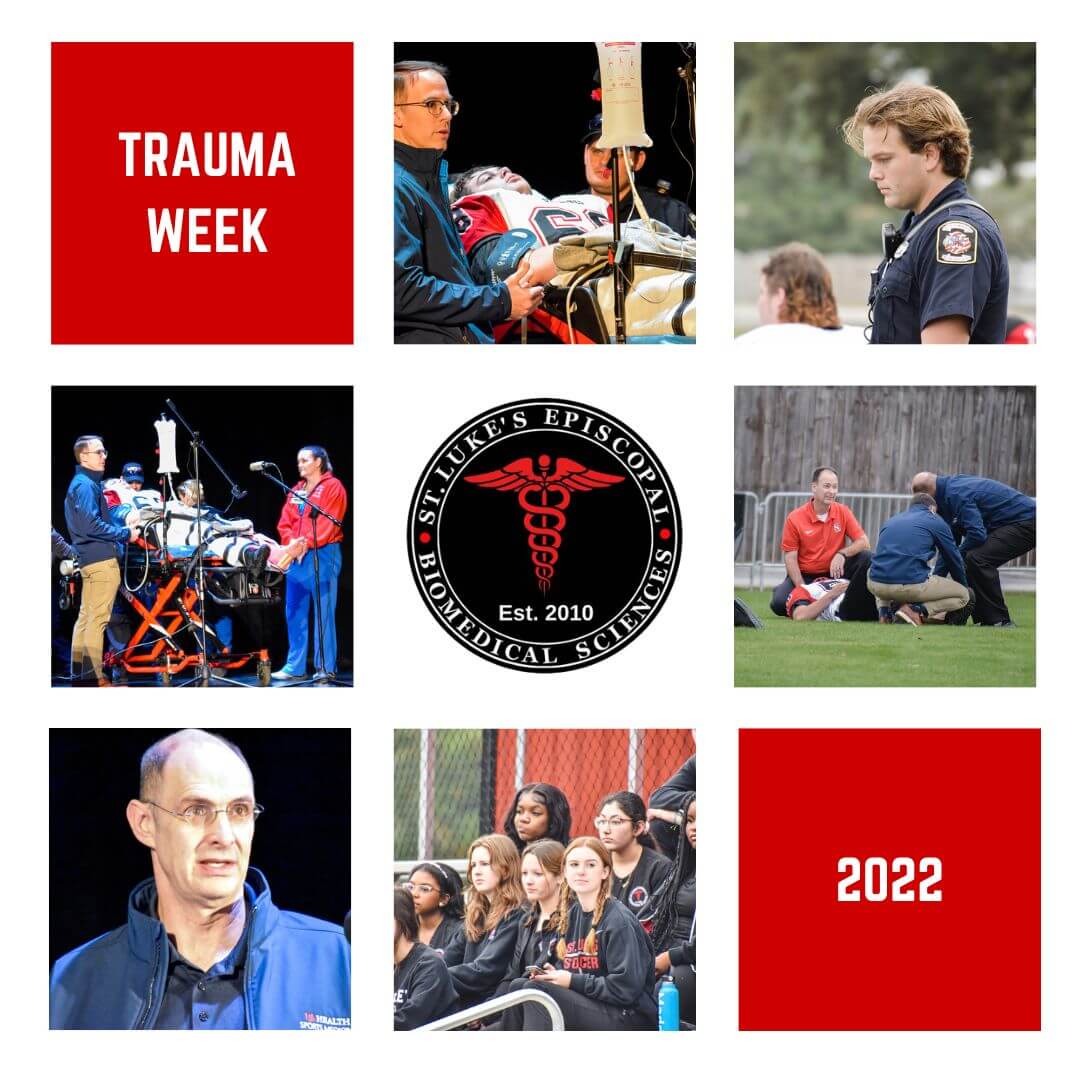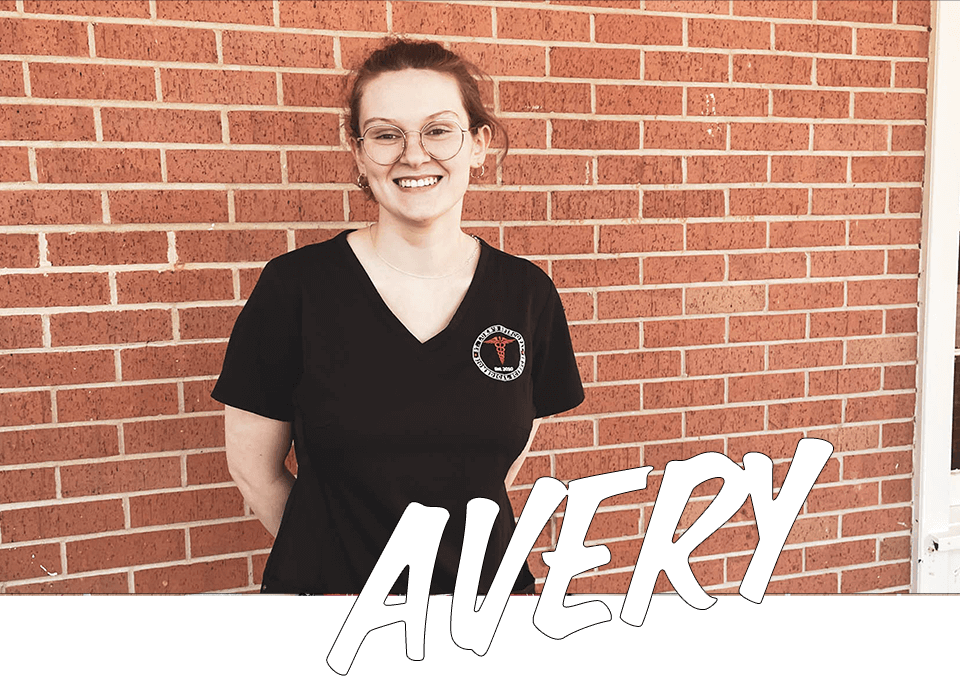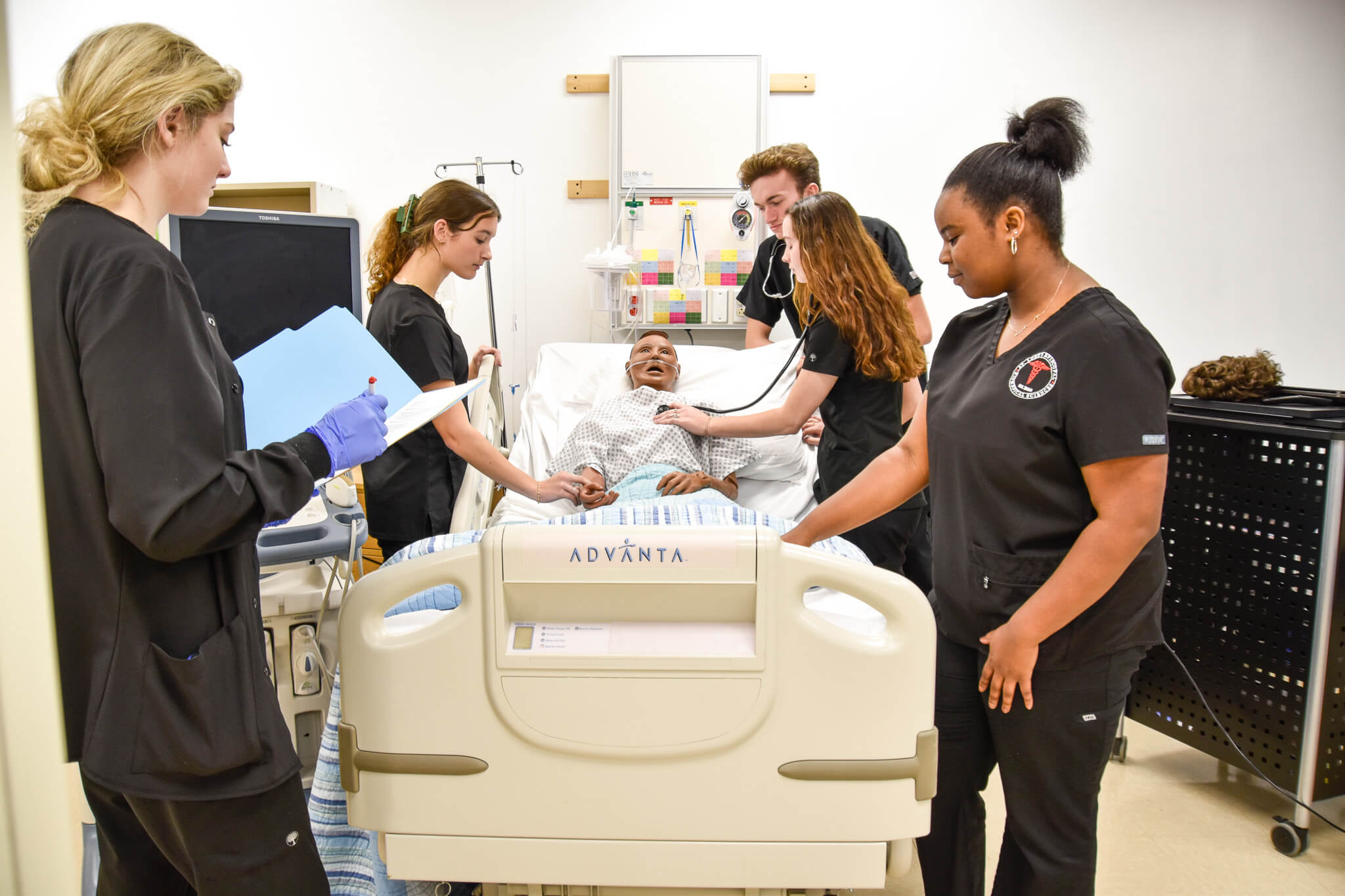Competition only matters if you are doing the same thing as everyone else.
M
any schools offer pre-health classes or career exploration. Only one offers a biomedical science program created to prepare you for entry into a collegiate pre-med or biological science major. For more than a decade as the only program of its kind in the region, the Biomedical Sciences at St. Luke's encourages students to explore solutions to real world problems in healthcare that can lead to powerful change within our community.
St. Luke's Biomedical Sciences.
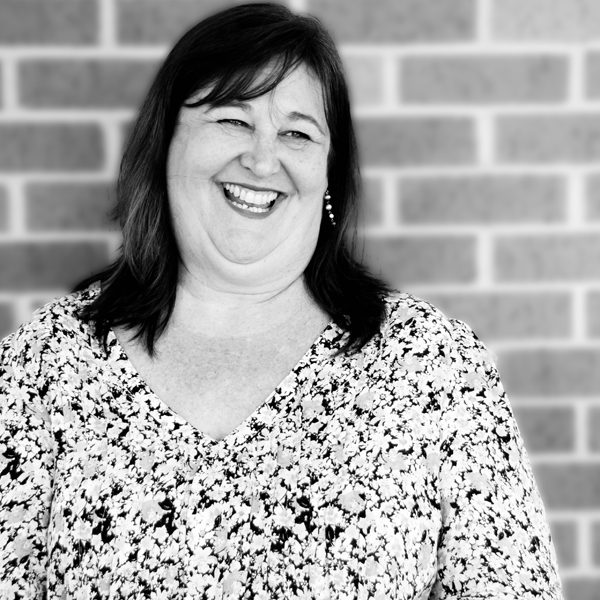
Diane McCleery
Program Director,
Biomedical Sciences
Welcome to the Biomedical Sciences at St. Luke's Episcopal School. Established in 2010, the program continues to be the only area high school providing a pre-professional college preparatory curriculum in the biomedical sciences. From its inception, the objective has been to provide opportunities for high school students to explore and experience a variety of healthcare and biomedical engineering related fields and career paths.
The program consists of 4 core classes and 4 prerequisite choices. Starting with Fundamentals of Biomedical Sciences, students begin an in-depth study of healthcare systems and clusters, medical history, HIPAA and safety protocols, infection control, basic assessment tools, and medical terminology.
With the implementation of 3D Virtual and Augmented (VR/AR) technology, students are able to visualize internal anatomical structures as well as immerse themselves in realistic settings that allow them to envision and create potential solutions. Access to telepresence robots, 3D printers, 3D laser printers and engravers, 3D ceramic printers, computer numerically controlled (CNC) devices, industrial vinyl plotters, green screens, audio and visual equipment, and programmable simulation mannequins add the opportunity for students to incorporate impressive components into their college application portfolio.
Skills & Simulation Lab.
From day one, students experience immersion activities in our cutting edge skills and simulation lab. With assistance from the University of South Alabama's human simulation team, we designed a space that is typically reserved for upper level collegiate work.
The lab includes designated hospital, clinic and triage simulation spaces with flexible classroom and debriefing areas. Manikin based simulation and standardized patient scenarios are observed outside the lab through glass walls.
Clinical Skills Lab students practice suturing, venipuncture, spinal immobilization, casting, and even canine dental exams and CPR. As the first school in the state of Alabama to incorporate a telemedicine robot into the curriculum, St. Luke's prepared students for the future of medicine before it was even here.
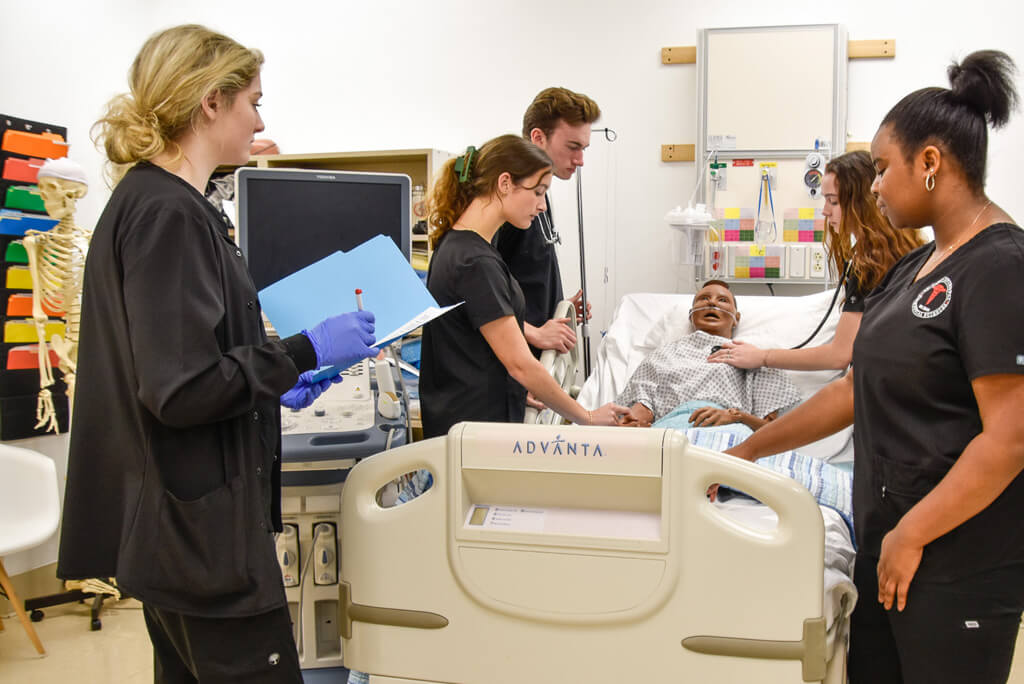
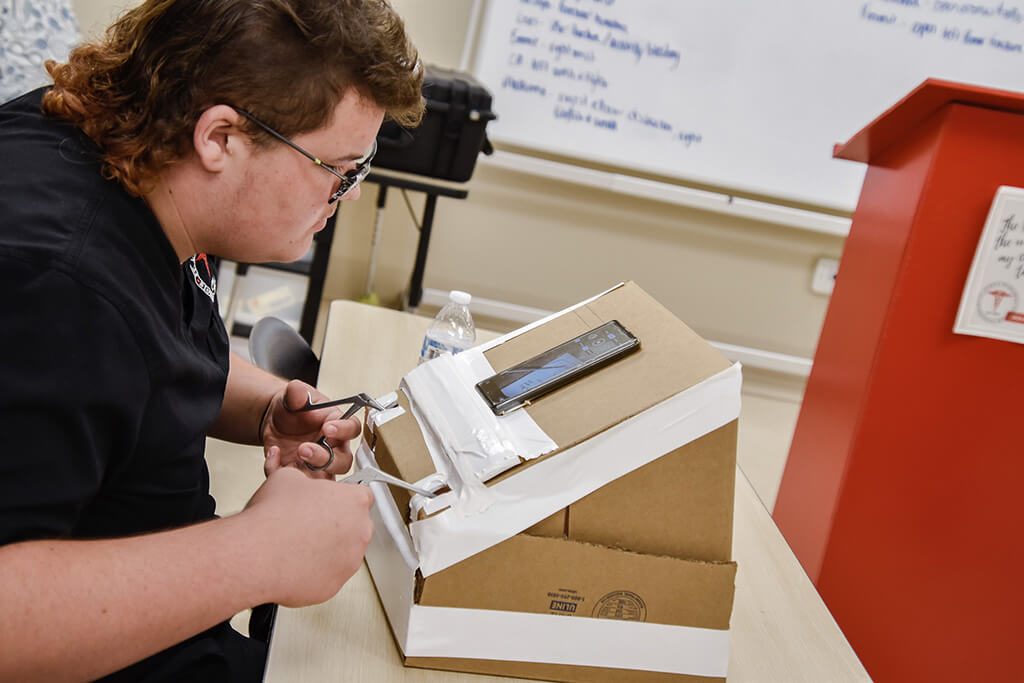
Innovations Lab.
The Innovations Lab is the perfect place for students to explore their interests in biotechnology and engineering. With tools at their fingertips such as a 3D Anatomical Scanner, 3D Ceramic Printer, 2 traditional 3D Printers and 2 CNC machines, students are developing both creativity and skill. The Innovations Lab is where we design and build prosthetic hands and laparoscopy simulators.
Culinary Lab.
St. Luke's newest lab, the Culinary Lab, is the home base for Biomed's Culinary Medicine class. Students learn far more than cooking in this class. They are growing in knowledge of nutrition, medicinal origins of the food we consume and so much more.
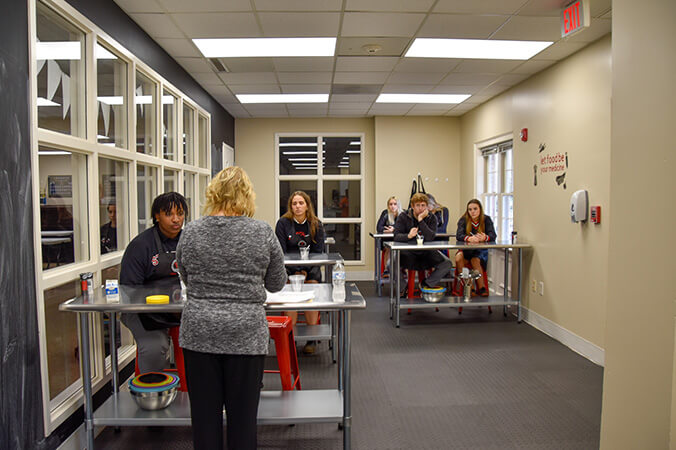
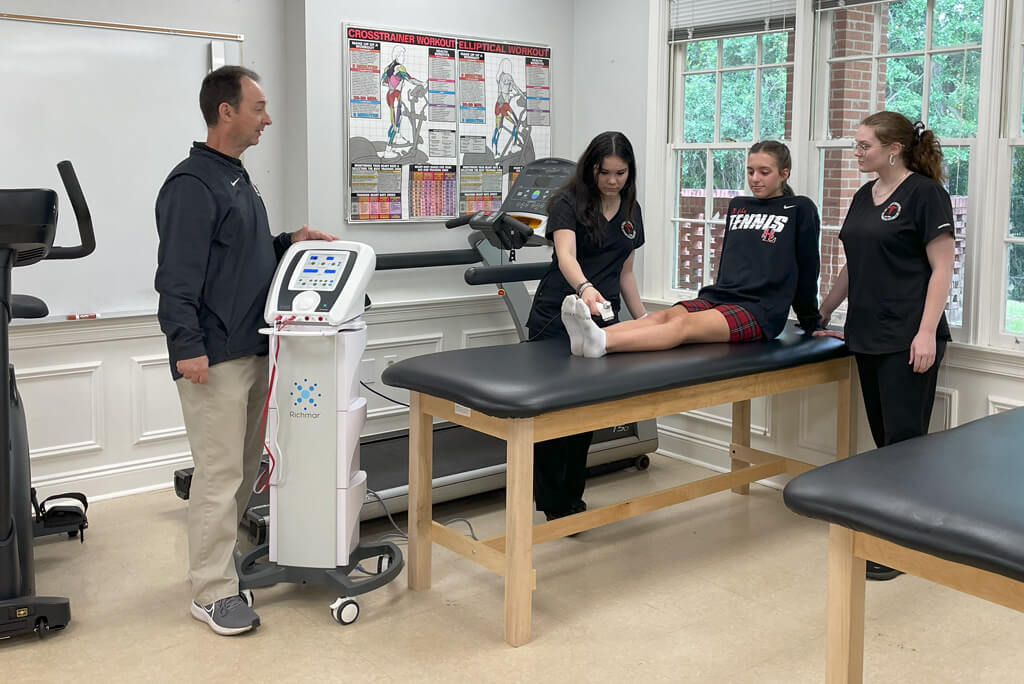
Sports Medicine Lab.
St. Luke's Sports Medicine class and lab offer the best preparation for students interested in studying sports medicine, athletic or physical training in college. This fully functioning lab contains everything you'll see in your physical therapist's office, and our Wildcats get the benefit of not only learning about the practice, but gaining real world experience in using the equipment.
Not to drop names, but we've got a lot of friends.
I
t all comes down to relationships, and we have developed relationships with more than 65 partners who love our students. In addition to
all 5 area hospitals, private practices, physicians, therapists, nurses, research
scientists and engineers welcome our students into their facilities to observe and often
participate in their daily schedules. St. Luke's regularly hosts guest instructors, both in person and virtually, from such
renowned institutions as John Innes Centre Department for Microbial Research, Mayo Clinic Department of
Cardiovascular Medicine, MIT Lincoln Laboratories, NASA’s Challenger Learning Center, Vanderbilt Center for
Mechatronic Intelligence, Walter Reed Medical Center, University of Alabama Caldwell Laboratory (a.k.a. Worm
Shack), University of South Alabama Mitchell Cancer Institute, and Wheeling University.
- Robert Baird
Orthopedic Surgeon - David Bentley
Sports Rehabilitation - Elizabeth Boone
Physical Therapy - Gidget Brown
Speech Language Pathology - C. Caleb Butts
Trauma and Burn Surgeon - Larkins Daniels
Cardiothoracic surgery - Tommi Daniels
Forensic Science - Lauren Davis
Genetics Research
- Benjamin Estrada
Infectious Disease - Rachel Fenske
Medical Journal Research - Alan Franklin
Retinal Ophthalmology - Barbara Gibbs
Infection control & military nursing - William Hardie
Healthcare Law - Adam Keeton
Pharmacology - Joanna Koulianos
Psychology - Susan LeDoux
Medical School Admission
- Steve McClellan
Flow Cytometry - Lisa McDonough
Pediatrics - Justin Mims
Equine Medicine - David Nelson
Biomedical Engineering - Aishwayra Prakash
Cancer Research - James Spires
Otolaryngology - Brandi Trammell
Obstetrics and Gynecology
Gregory Zieman
Oral and Maxillofacial Surgery


